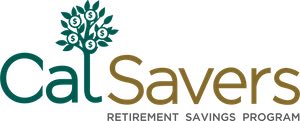The rule temporarily reinstating the requirement that employers provide two identifying numbers in order to register with CalSavers could become permanent. 
Employers originally had been required to provide (1) their employer payroll tax account number and (2) their federal employer identification number in order to register with CalSavers. However, on Dec. 13, 2021, the CalSavers Retirement Savings Board approved an amendment to the regulations governing CalSavers that removed the employer payroll tax account number as a field an employer had to fill out in order to register.
But at its May 22, 2023 meeting, the Board noted that its staff was proposing to once again require employers to provide the employer payroll tax account number in order to register with the program. The Board said its staff contended that doing so would improve the program’s ability to protect confidential employer data. They further said they believed reinstating that requirement would “have minimal impacts” on the ease with which an employer registered with the program. The Board adopted Resolution 2023-03, which temporarily amended regulations to require employers to provide an additional data field in order to register with the program.
The Board staff on Sept. 29, 2023 began the process of making that resolution permanent. At its Nov. 13 meeting, the Board approved the readoption of the emergency amendment to ensure it does not lapse before the regular rulemaking process has been completed. This is necessary, it says, in order to better protect confidential employer data.
If the Board adopts the change through the regular rulemaking process, employers that register with CalSavers would be permanently required to provide both numbers.
Impact of the Proposed Change
The Board says that this change would not impose significant, nor direct, expenses on individuals or businesses. “Any impact to employers as a result of the change is expected to be de minimis,” the Board says.
The Board does aver, however, that making the change permanent could have “some indirect impacts” on small businesses. It adds that it could indirectly affect the creation or elimination of jobs through changes to consumption and new investment resulting from new savings by participating employees.
- Log in to post comments
